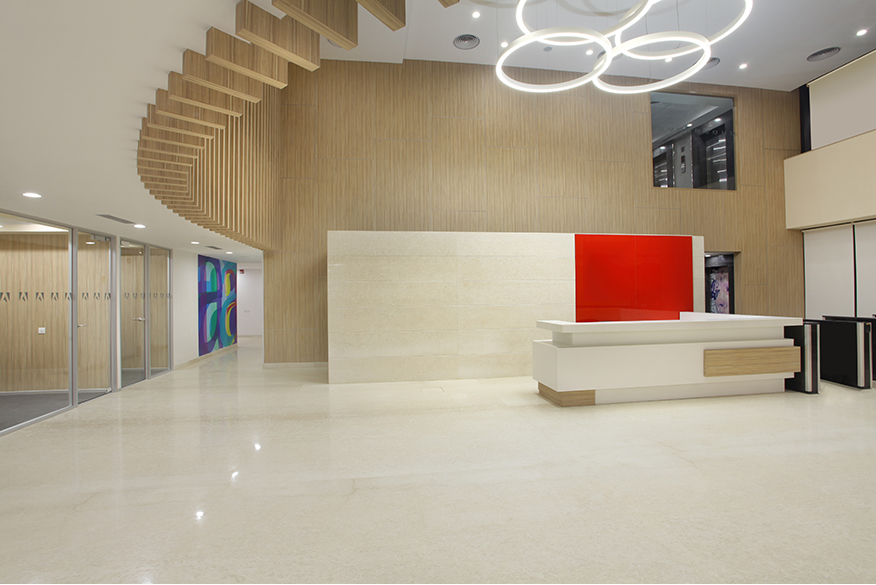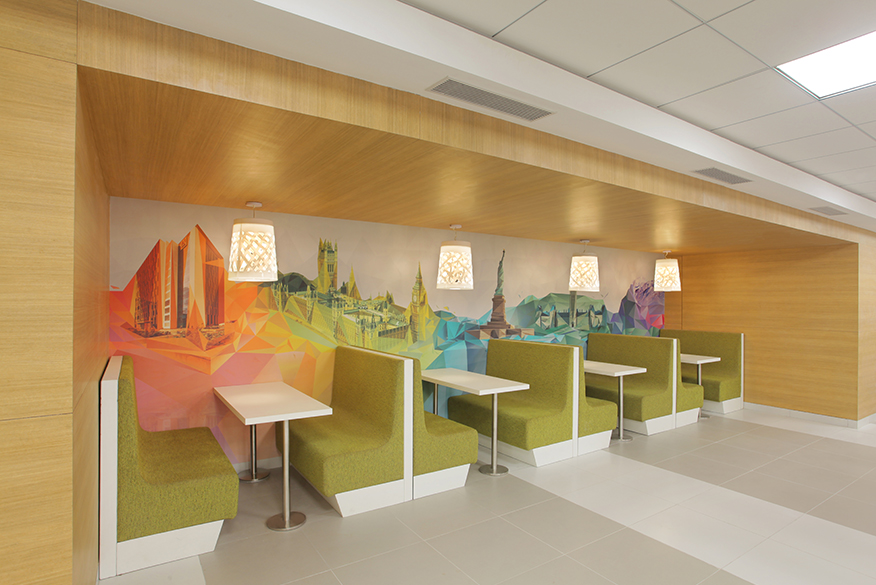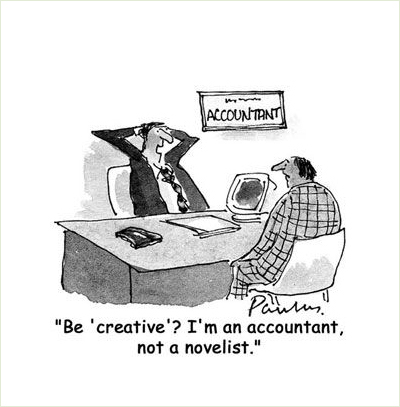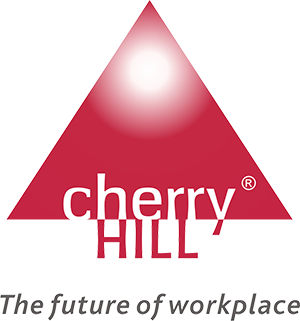© CHERRY HILL INTERIORS PVT. LTD.
© CHERRY HILL INTERIORS PVT. LTD.

Hello Friends,
Winter has arrived on our doorsteps and there seems to be festivities everywhere you turn. In this aura of celebrations, we explore a phenomenon with some photograph in this edition of 'Elements'.
Our newsletter is a roundup of news, reviews and other happening in the world.
We feel awesome when we share our brilliantly executed project “Adobe (Noida)” featured as our Project of the month in this issue.
This month we bring you an article on Management By Weekly Check-In Is the New 'Wandering Around'.
On the occasion of Gandhi Jayanti, sharing few words by Father of Nation – “Live as if you were to die tomorrow. Learn as if you were to live forever.”
Happy Reading !!!
Team Cherry Hill.
Management By Wandering Around (MBWA) sounds like a distraction, something for team leads who are either lazy or confused. But it’s a process that has helped some of the world’s largest and most successful companies. MBWA managers walk around the workplace to check in with employees, check on the status of equipment and to be more present and available. For example, Steve Jobs would often move about at Apple, responding to customer emails or initiating customer calls. The practice seems to have worked out quite well for the tech giant.
Often attributed to Hewlett-Packard founder David Packard’s practice during the 1940s, MBWA was put into more widespread use at HP in the '70s. The expected benefit is that a manager, by random sampling of events or employee discussions, is more likely to improve alignment, morale, productivity and other business outcomes. Compare this with having an open door policy and expecting brave employees to show up with questions or status reports in hand. That is often intimidating for employees even in the most open and transparent cultures.
MBWA is meant to be random, but not aimless -- with managers taking a closer look at everything from the environment, company hardware, or employee productivity. When management presence is not random and employees know that they are being watched, this influences their behavior. Announcing that the boss is making her rounds on the floor today might cause people to work harder than normal, or perhaps even have them make mistakes due to the added pressure. MBWA is meant to be unplanned so that managers can observe work in its natural state and have the greatest impact.
The new workplace:
Today things have changed. Over the past five years there has been a 50 percent increase in companies that have the majority of their teams working remotely. Many are predicting that the telework trend will continue as technology makes it easier and employee demand for flexibility increases. Managers in many industries are unlikely to have physical access to employees, many of whom telework. Sometimes the managers themselves are thousands of miles from their teams.
In the not-so-new millennium, effective managers are shifting into what I am calling #MBWC (Management By Weekly Check-in). They are using different technologies like employee surveys, employee feedback software, or email -- for those who like managing employee performance in the most inefficient way possible.
Unlike MBWA, this practice is not meant to be spontaneous. In fact, a regular cadence is recommended for maximum results. When managers ask certain core questions repeatedly -- like those dealing with goals and objectives -- they can track progress and help influence it.
What is not spontaneous is changing up some of the questions depending on what managers are trying to achieve. For example, managers can ask the same weekly questions around employee accomplishments, but change other questions periodically to drive higher morale, maintain a strong culture or influence other outcomes.

Best practices for checking-in:
There are some dangers to checking-in with employees either virtually or in the physical workplace. According to this Economist article, MBWA often arouses suspicion from employees who see it as an excuse for managers to spy and interfere unnecessarily. The key here is to have this be an ongoing practice where management is transparent about the outcomes.
I’ve found this to be true with digital check-ins. Collecting employee feedback is effective but to encourage trust and candor, managers have to respond to feedback with their words and actions. There are three levels here:
1. Acknowledge the employee for their candor.
2. Respond and create a conversation around the feedback.
3. Let each employee know that you will take action (if that is most prudent) and keep them updated on progress.
Employee feedback software platforms are the newest “technology of the obvious”. Effective managers are curious about what employees are working on, their levels of inspiration or frustration, and their innovative ideas for the product or company processes. A weekly check-in lets them ask questions like these:
1. How are you feeling, what’s the morale around you?
2. Which company value would you like to have a new high mark in? (as in, which do you feel you aren’t living to its potential?)
3. Anything in your work world that’s less than stellar/causing frustration or delays?
Nothing can replace regular face to face contact, and every manager should check-in personally as often as possible. In a marketplace where the growing trend is to work or manage remotely, the best alternative for facetime is Management By Weekly Check-in.

Sector: Computer software
Year: 2015
Duration: 6 months
Scope of Work: General Contract
Adobe Systems Incorporated is an American multinational computer software company. The company is headquartered in San Jose, California, United States. Adobe has historically focused upon the creation of multimedia and creativity software products, with a more recent foray towards rich Internet application software development. more >>



Copyright © CHERRY HILL INTERIORS PVT. LTD. All Rights Reserved.
Enter your number to request a callback. Our team will get in touch with you within five minutes.
